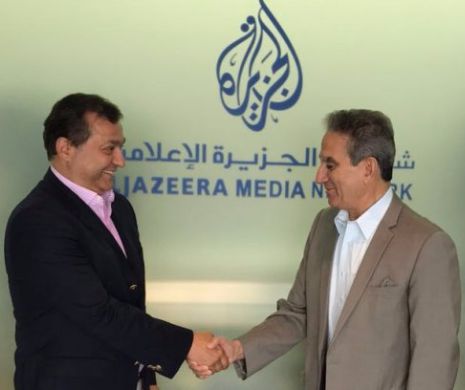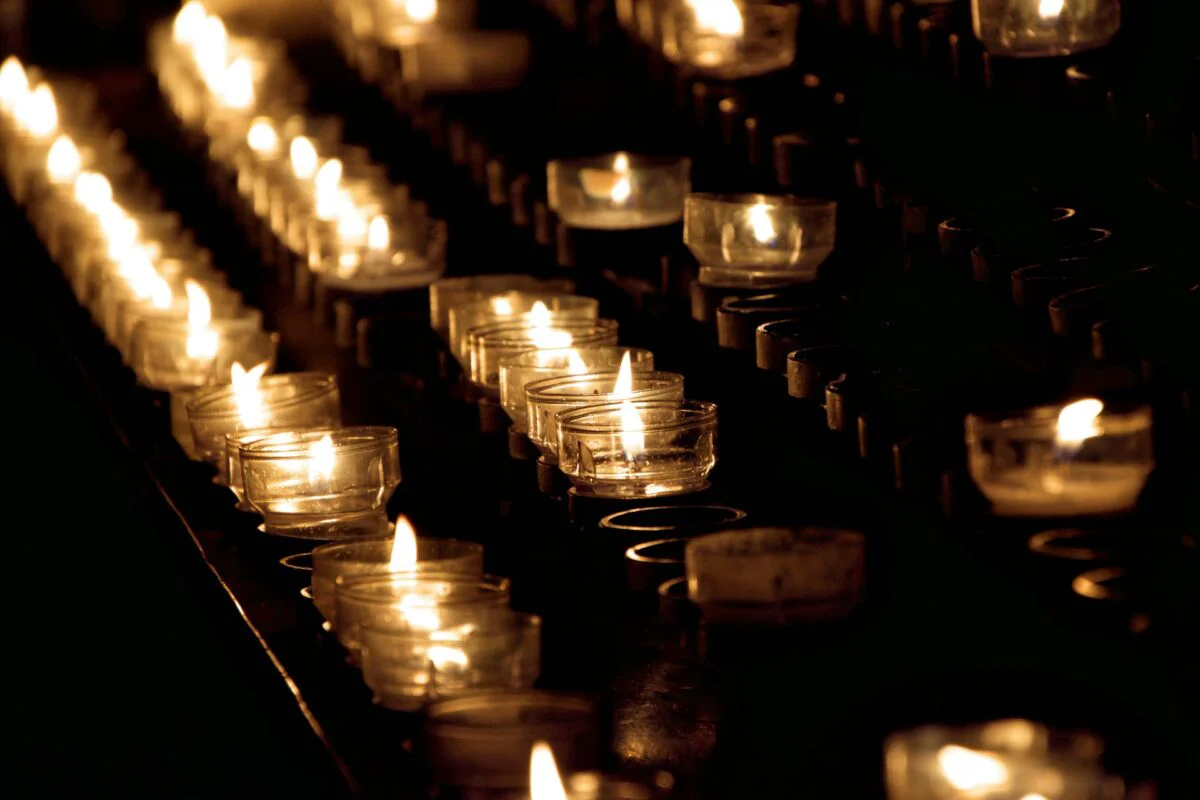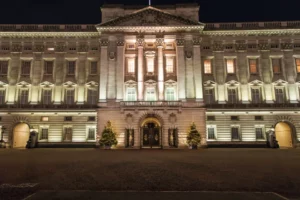EXCLUSIVE. Al Jazeera GM, Mostefa Souag, responds to the attacks of 13 Arab countries on the news channel | Dan Andronic's interview
- Dan Andronic
- 25 iulie 2017, 15:42

Al Jazeera ( the island in English) is the most influential news channel in the Arab World. And not only. It appeared in 1996, being fully funded by the Qatar Government (annual budget of about 100 million US dollars) and quickly gained a huge audience in the Middle East where there are around 350 million of Arabic speakers.
In 2001, it was rated as the most watched news channel, and in 2006 more than 75 % of the Arabs indicated it as their favourite news channel. It has offices in over 80 countries, and since the same year, 2006, there has been an English version as well. It has launched its own telecommunication satellite.
Arrived in the midst of Qatar's diplomatic conflict, I sought to speak with a Senior of Al Jazeera news channel to find out their point of view concerning the demand of the 13 Arab countries led by Saudi Arabia to discontinue the emission of the TV channel.
It seemed strange to me how a television station had become of crucial importance in solving a major conflict in the Arab world. I knew that Al-Jazeera was considered by the Arab world and part of the West as a close post to the Muslim Brotherhood Movement, by Yemen's opposition, critical towards the immobility of regimes in most of the Arab countries. I was told that it was seen as a security risk. To my surprise, I received the acceptance for an interview with the Al Jazeera leader. Mostefa Souag is the General Manager of the Al Jazeera News Channel in Arabic. Prior to that, he held numerous positions within the network, including the Al Jazeera News Director (Arabic) and Media Adviser of the Al Jazeera Administration Board . He was also the director of the Al Jazeera Study Center headquartered in London and the Head of the Editorial Bureau, too. Prior to Al Jazeera Media Network, he worked at the BBC World Service and the MBC media group. Souag holds a PhD in literary studies and had been a professor of Literary Theory at the University of Algiers (Algeria) until 1993. He is fluent in Arabic and English. "The news channel is criticized by governments that do not believe in the right to information." Dan Andronic: Mr. Mostef Souag, you run the most important news channel in the Middle East. Do you still have the feeling that you are a voice of change? Do you think Al-Jazeera preserves its initial mission? Souget Mostef: I think change is the only constant of the world we live in. And Al Jazeera has been a voice of change since the beginning of November 1, 1996. The change is taking place right now when we are talking, it has happened and it will be going to happen. However, the change occurs through conflict between the different components, and sometimes you are above, sometimes underneath. I think Al Jazeera was the most important media vehicle in the Middle East from the beginning. “It's still ...” “It's still, but Al Jazeera is not only in the Middle East, it has become international. I think Al Jazeera's voice is the most professional voice in the media landscape.” “Do you believe this despite criticism?” “Criticism is normal. You cannot run such a press business in a bold manner of making journalism without being criticized. Criticism is a sign of doing the job as journalists in a right manner.” “Normally you have to worry about lack of criticism when you are a journalist ...” “Exactly! Criticism is an indicator of well-done affairs. We often find that we are criticized by both the government and the opposition, both sides believe that Al Jazeera supports others. In the Middle East, this is more pronounced than in the West, because the tradition of having highly professional media does not exist. So if you do the right thing, if you are highly balanced, professional, then people will be on the one side, not on the other.” “Is this the way you build your audience?” “It's not about building an audience, but about telling the truth to people and letting them judge alone. I think the people who follow us trust us because they saw that every time we were right, those who criticized us were wrong. We were criticized because Al Jazeera was telling the truth, not because we were doing something wrong. That is why we have such a large audience in the Middle East , and now even internationally.” “How do you feel as the head of a news channel that is now in the midst of a conflict, or even more, is the reason for a diplomatic conflict in the Middle East?”
“ I do not know if it is the reason for the conflict, but it is an important point mentioned in all the requests and it has always been the same. The Al Jazeera news channel was targeted by Arab countries that do not believe in press freedom. In fact, Al Jazeera was targeted by the governments of those countries who do not believe in people's right to know, to have the information on which to base their own decisions. For all of these , Al Jazeera has been put in this situation. Not only (the rulers) the Arabs did it, but of course they were the most aggressive against us. For a long time we were not allowed to send information from Egypt, we were asked to leave Morocco for two years, in Algeria we have no one to work for us, in Tunisia we were not allowed to do our job, in Syria we were was thrown out as soon as the conflict broke out , in Yemen, in Bahrain, we had the same problem, and in the United Arab Emirates we are only allowed to broadcast business reports.”
We had retired, killed reporters, destroyed offices, but we never listened to those in the government."
“Do you think this is because of the fact that there is a tradition of the media in the Middle East as a part of the state?”
“I want to answer you completely to the previous question. I have a huge responsibility, so when this crisis broke out, I talked to my colleagues and we decided to continue our work and be as professional as we could be, especially with those who were our opponents, with the people who attack us. We do not want to attack them, but if we have something real, important to say, we will say. We will not do like Al Arabiya or Sky News (rival Arabian rivals), or as Abu Dhabi or Dubai.” “It's important to look at what you are doing ...” “We are not trying to say the others are right or not, but we will present the real facts to the people and let them judge by themselves. We do not attack, we do not use offensive expressions, but of course we will defend the position of Al Jazeera and we will convey everything we have to say about the other countries. That's the feeling I have. It's about much more responsibility.” “How was it in 2014 (but another diplomatic conflict between Qatar and other Arab countries, of smaller magnitude, but in which the Al Jazeera issue appeared again)? In 2014, Al Jazeera's closure was once again a big issue in the diplomatic conflict between Qatar and other Arab countries. To my knowledge, then, the Qatar government came with a special request to Al Jazeera management. You have been asked not to report about the Gulf Cooperation Council (GCC).” "I do not understand, Al Jazeera has reported on what happened, about the GCC demands, about Al-Jazeera's demands. That's our job, that's what we do. Before that, there were many complaints about Al Jazeera, from Americans, from British, from Egyptians, from Tunisians, but every time the Qatar government did not intervene. We are extremely lucky to be here because the government has been very firm: Al Jazeera is an independent and professional television station and will do everything it takes to stay that way. I have not had any pressure from the Qatar government. Never! We did our job as much as I could for a professional. Sometime, the emir's father said at the beginning of Al Jazeera that we are an independent post and as long as we remain professional no one will intervene in our work.”
“I referred to a clear event. In the 2014 conflict, according to official sources, there was a meeting between Al Jazeera management and representatives of the Qatari government and they presented GCC's request not to broadcast reports about the countries in that organization. This meeting lasted two hours, and, to my knowledge, the result was that Al Jazeera management refused to make the slightest concession. Can you confirm or comment on this?”
“No. That's not what happened in my presence or I knew about it. I can tell you with the utmost confidence that if it happened behind my back...”
“I have an official source that told me this story.” “Please, bring that official source to tell me where and when it happened. It did not happen like that. I want it to be clear! Never a member of the Qatar government has ever come to Al Jazeera or to meet elsewhere to discuss such things. Neither in 2014, nor in 2017, nor before, because we had serious problems all the time. We had closed reporters, killed reporters, offices destroyed in Afghanistan, but we never listened to the government, we did not consider the threats, because we were doing our work as journalists. However, by returning to the question, this has never happened!” “How do you make editorial policy on sensitive issues, do not you see someone from the government?”
"When Al Jazeera appeared, people learned how to debate, to argue, without becoming enemies." Dan Andronic: Let's turn back to the way the media is viewed in the Middle East. I was asking you about the government's attitude towards the press. Is it that the press is the property of the state or those close to the ruling circles, or is it a tradition hard to break? Moset Souag: There are many reasons, but I will start with that moment when I was a young man in Algeria. I was watching the official TV station, and in the news, the first 10-15 minutes, maybe half an hour, were reports about the president of Algeria. What he did, how he did ... “I know, we had a similar period in Romania.” “I remember being in Abu Dhabi at some point and while the emir's father was the leader, the television in Abu Dhabi had a camera that went with him on the Abu Dhabi road to Al Ain, almost 100 kms! Everything was broadcast live on TV, followed by a visit, and so on ... If you go to any other Middle Eastern country, the government television, which is actually the only one, exactly the same thing happens.After the emir or sheik, the ministers followed, then other government officials, and only in the last row local or international news. So when you have generations that grow up in this environment, and these governments, which are usually dictatorships, no matter how they came to power ...”
“Iron hands, at least ..”.
“Yes. So people are accustomed to doing this kind of press, something new, different, would make them anxious, at least at first, so governments want to keep this tradition, they do not want people to think independently. That's why, when Al Jazeera appeared, the first news bulletin was shocking for a lot of people in the Middle East. They had heard we were going to be an independent post, but they thought that we would give some news about the Emir of Qatar, something about the government ...”
“Certainly they did not think they would be missing, but maybe they would be shorter.”
“I was not here when Al Jazeera was launched, but I know when the first news bulletin was released with news from Congo. Something important had happened there, and we said that. That's how people started to see that Al Jazeera was something different. Since then, the Arabs have expected their televisions to be different, to give them true news, not the president who has gone and returned etc. Secondly, in the Middle East, people had lived under pressure, in one way or another, regardless of whether the government was more or less delicate.”
“Usually in the Middle East it is about generosity, not delicacy.” “Yes, so what happened was that people could not say what they were thinking, they could not hear the truth. And the people who had the courage to tell the truth , were executed. So, when something like Al Jazeera came, people began to learn how to debate, how to argue without being enemies. I think that’s what makes Al Jazeera important.It is that through the television debates it has been shown that hot issues can be discussed together without being enemies, and when they end, the two shake their hands. That was not part of the tradition of the Arab world. That's what people now want, but governments do not!
„I agree, but Al Jazeera is funded by the Qatar government, just like Al Arabyia or Sky News, why do you consider yourselves special?”
“You're right. From this financial perspective, we are like the other Arabic televisions. But the difference is that, until now, no other Middle East government has done what the government of Qatar did. None said, we're financing you, but we want you to be independent, professional. And we have not had any attempt to be influenced by the Qatar officials for nearly 21 years. I realize this is hard to believe, even for a Westerner. Financing a media institution means you'll get something back at some point.”
“It would seem like a philanthropic gesture otherwise.” “Remember the BBC in the Second World War. The British Foreign Minister asked the BBC to change its news bulletin, which was about the Nazis, about the war, and the BBC refused.” “They were asked, at some point, not to report the sinking British ships, the real evolution of the war, and they refused.” “The BBC was strong enough to say that they will continue to do their job professionally. You expect such a government attitude, but the interesting part is that the Qatar government has never done it. And this is extremely important.”
„We have journalists with families in Syria, that have been pressured and stopped.”
Dan Andronic: On the other hand, you have former Al Jazeera journalists who say that the post you are leading was a voice of change, and now it has become just an official propaganda speaker. How do you explain this kind of attack? Souteg Mostefa: To whom do you refer in concrete terms? “I‘ll give you one example. To Akhtam Suliman (but one of the critics of the Al Jazeera editorial policy, I chose him as an example because he seemed the most articulated) ...” “Okay. We talk about it. Akhtam Suliman was our correspondent in Germany.” “He said he resigned because he felt he could not do the job independently.” “It's not like that. Akhtam Suliman resigned because he was a supporter of Assad's regime, did not like how Al-Jazeera related to the conflict in Syria, so I believe he truly loves the Damascus regime, a criminal regime in my opinion, whether he was pressed to resign. He's a good man, I spoke to him many times, but accusing Al Jazeera of being just a vehicle of official propaganda is nonsense. I can assure you that the journalist you are talking about was very pleased with the way we did our business until we started talking about the conflict in Syria. He appeared on German television and defended Al Jazeera's professionalism.”
“So you say he underwent a sudden change.”
„I can understand such situations. We have a lot of journalists under pressure, especially if they have families in Syria, they told us they could not work for us anymore because they were threatened and stopped. I understood them, so I told them they could return to Al Jazeera when things were going to calm down.”
“I agree, but it is a theme that has returned over the last few days. I do not know if you read the interview given a few days ago to the Italian newspaper La Repubblica by the Minister of Information of Saudi Arabia. He said Al Jazeera is an instrument of the negative agenda in Qatar. Moreover, he says that Al Jazeera is characterized by hostility, it is a defamation tool of manufactured news, is an instrument in the hand of Al Qaeda, DAESH and Hezbollah. That's the exact quote. What is your reaction?” “It is very simple. The Saudi Minister has to defend his country's position.” “True, but he's not talking about Qatar, but about Al Jazeera.” “Yes, but Al Jazeera is an important element on the agenda of those who ask Qatar to keep it silent. However, you cannot ask the Saudi Arabian Minister to say that Al Jazeera is a wonderful television station, but we are asking for its closure. So he has to come up with some reasons. I can tell you a few words about this absurdity. First, Al Jazeera sent information from Saudi Arabia until they stopped us ...” “In June 2017 ...” “Yes, in June. How did this happen, how could we then work, how were we accepted in Saudi Arabia, knowing we were a terrorist tool for Al Qaeda?” “Maybe they tolerated you?” “Tolerance in Saudi Arabia? Wow, it's the first time I hear that! Secondly, the coalition spokesman who is fighting in Yemen is a Saudi, was broadcast on Al Jazeera all the time. How did he say nothing, at that time? Thirdly, whenever Al Jazeera was accused of this, I asked the government to bring only one concrete proof. They never did it! And I'm not just talking about Saudi Arabia, Egypt, but about Syria, or any other. They never did it. For example, the regime in Egypt asked all the televisions it controls to attack Al Jazeera, but we did nothing but continue to tell the truth. They are all angry, because we present the truth to people.” “Let's just say: the other side of the story!” “No, we bring all the parts of the story! Even with Egypt, when they kicked us out of the country, when they put our reporters in jail, every time we were discussing a matter with Egypt, we brought someone to support the Cairo government . We do not want to present just a part of the story, no matter what! And when we do not find anyone to represent this point of view, asin Assad’s case, we have no one to support his cause, we ask our reporters to take this position and say: “The Syrian government claims this and that ...”








